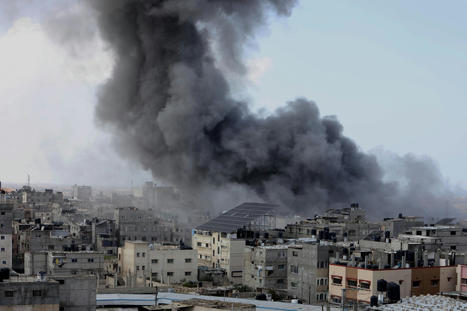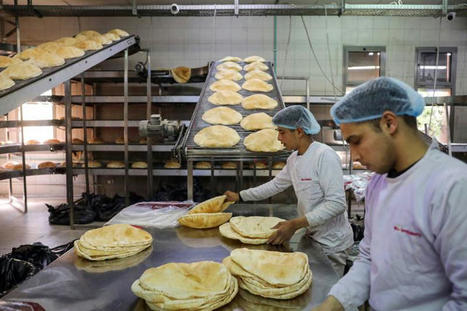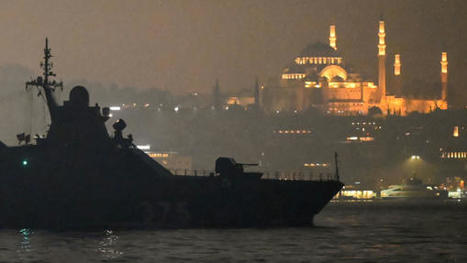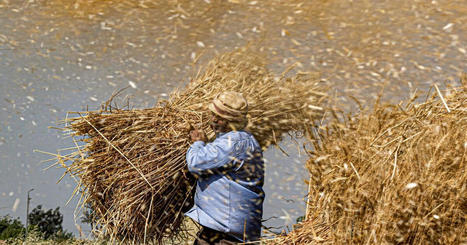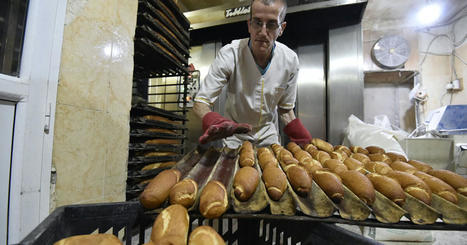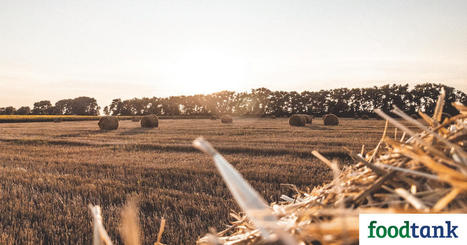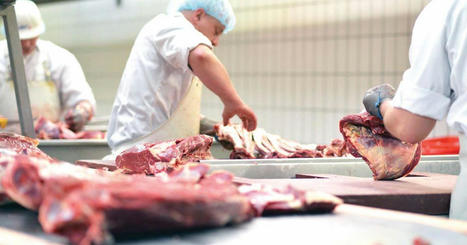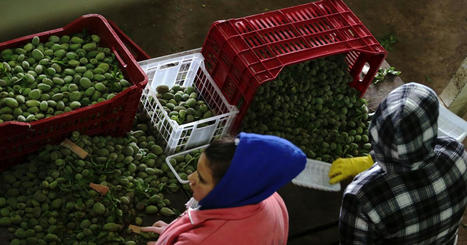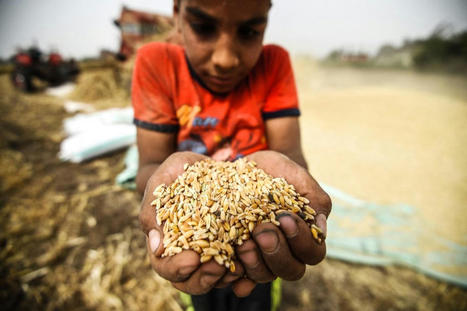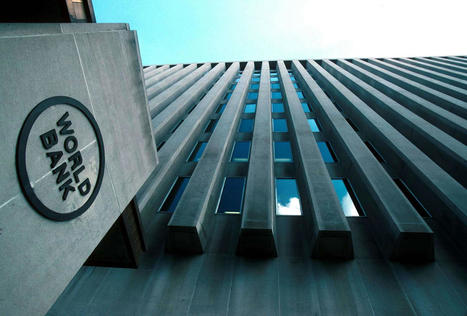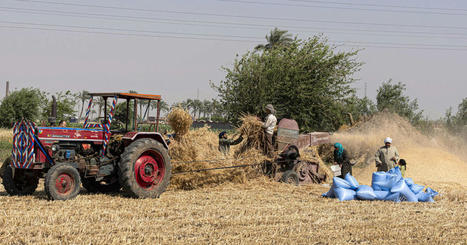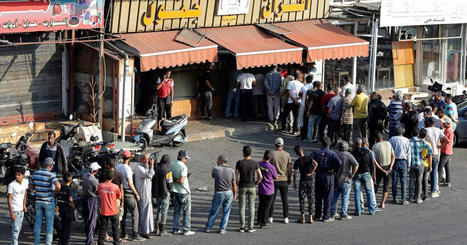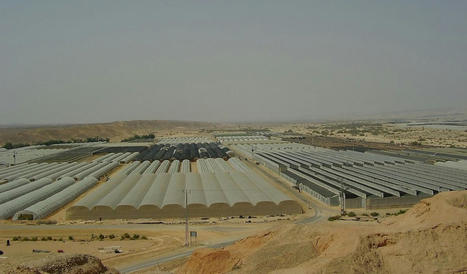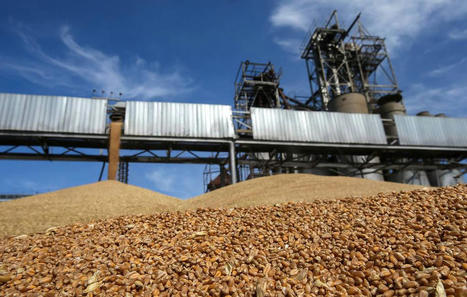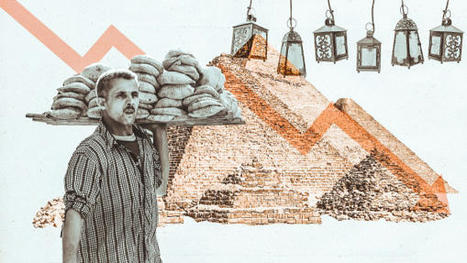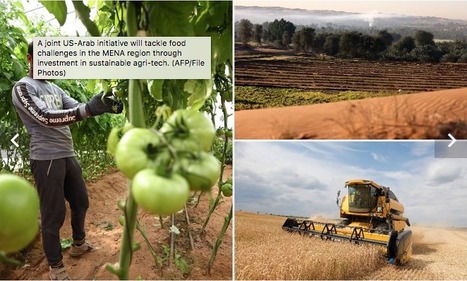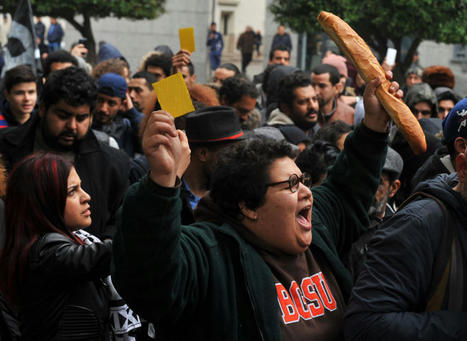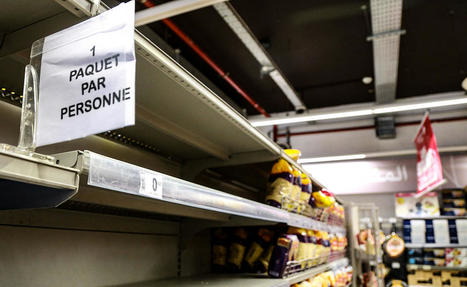 Your new post is loading...

|
Rescooped by
CIHEAM News
from CIHEAM Press Review
January 30, 2024 8:11 AM
|
Introduction Nearly 80 percent of Gaza’s population has been displaced in the ongoing conflict, which has entered its second month. A recent World Food Programme rapid food security assessment conducted during the temporary humanitarian pause in fight in late November has found evidence of unprecedented humanitarian crisis, including widespread food insecurity.

|
Rescooped by
CIHEAM News
from CIHEAM Press Review
August 16, 2023 9:42 AM
|
After Russia said on Monday it would end the Black Sea Grain Initiative – a deal to provide safe export routes for about 20 per cent of the world’s grain – governments have been trying to assess the impact on world hunger.
Ukraine, sometimes called the breadbasket of Europe, is a major producer of sunflower oil, wheat and maize, but when Russia invaded in February 2022, turning much of the agriculturally rich east of the country into a warzone, wheat prices were hit hardest amid a general surge in global food prices.

|
Rescooped by
CIHEAM News
from CIHEAM Press Review
October 28, 2022 10:19 AM
|
Post-Covid-19, the challenge of adjusting to high fuel and food prices, and to rising global interest rates, is particularly hard for the oil importing countries of the MENA region. Public debts are rising fast towards unsustainable levels. Already, currency devaluation and inflation are combining to lower economic growth, increase poverty, and put more stress on a battered middle-class, leading to a rise of social unrest.

|
Rescooped by
CIHEAM News
from CIHEAM Press Review
September 20, 2022 9:57 AM
|
Food is becoming much more expensive. Ukraine, Russia, and Belarus are collectively major producers of wheat, maize, sunflower oil, natural gas, and fertilizers, and the Russian invasion of Ukraine has jeopardized that production and exportation. This has interacted with climate shocks and the lingering impacts of the pandemic on supply chains to result in alarming increases in food prices.

|
Rescooped by
CIHEAM News
from CIHEAM Press Review
July 8, 2022 12:10 PM
|
Chickpea shortages caused by climate change and the Russian war in Ukraine are threatening hummus supplies, experts say.
Data from the Global Pulse Confederation shows that global chickpea production could dip by as much as 20 percent this year.
Weather conditions this spring meant that farmers in the United States, the fourth-largest chickpea exporter, planted fewer trees as they prioritised more lucrative crops like corn.

|
Rescooped by
CIHEAM News
from CIHEAM Press Review
June 26, 2022 6:03 AM
|
Turkey next week will host Russian, Ukrainian and UN officials for talks aimed at resuming stalled grain exports across the Black Sea, local media reported Tuesday.
The meeting in Istanbul would be preceded by a visit to Moscow by a Turkish defence delegation this week, NTV television and CNN Turk cited Turkish presidential sources as saying.

|
Rescooped by
CIHEAM News
from CIHEAM Press Review
June 7, 2022 12:23 PM
|
CAIRO — The Egyptian government asked the World Bank in late May to obtain $500 million to finance the Emergency Food Security and Resilience Support Program, which is aimed at managing Egypt’s needs for imported wheat in light of the ongoing repercussions of the Russian war in Ukraine on global markets.

|
Rescooped by
CIHEAM News
from CIHEAM Press Review
May 3, 2022 4:15 AM
|
As the Russian military intervention in Ukraine continues to disrupt access to food commodities, Algeria is expected to have sufficient wheat reserves to last for the rest of 2022. But a drawn-out crisis will eventually put pressure on the country’s wheat supply and access.

|
Rescooped by
CIHEAM News
from CIHEAM Press Review
April 22, 2022 3:28 AM
|
A much worse food situation is expected in the Middle East and North Africa, which are the main importers of food from Ukraine. Rising world food prices as a result of the war in Ukraine could lead to famine and riots in poor countries. There is a danger of a repeat of the food riots that took place in the previous period of soaring prices in the late 2000s.

|
Rescooped by
CIHEAM News
from CIHEAM Press Review
April 8, 2022 5:12 AM
|
Butchers and meat importers are concerned about price hikes in meat and expect that within a month, they will have to buy wholesale meat at today’s retail prices.
“Until last December, I would buy chicken breast at €3.40 per kilo and sell it at €6.85. As from next month, I’ll be buying it at €6.50 and selling it at around €8,” a butcher explained.
“And I will still make less profit than I used to. And what if fuel and utility bills go up as well? There’s a limit to how much expenses we can absorb.”

|
Rescooped by
CIHEAM News
from CIHEAM Press Review
March 25, 2022 7:30 AM
|
Nations in the MENA region have been intensifying efforts to increase their food security, with Russia's invasion of Ukraine the most recent geopolitical event to underline the fragility of global supply chains, as well as the importance of agricultural self-sufficiency.

|
Rescooped by
CIHEAM News
from CIHEAM Press Review
March 18, 2022 12:37 PM
|
Ukraine and Russia provide several Middle Eastern states with wheat, sunflower oil and more. Lebanon’s Minister of Industry George Boujikian ordered today an export ban on "foodstuffs" that are manufactured in Lebanon. The decision is effective immediately, the official National News Agency reported. The outlet did not specify which foods will be subject to the measure.

|
Rescooped by
CIHEAM News
from CIHEAM Press Review
March 18, 2022 12:38 PM
|
Egypt is hoping that a new plan to rely on its own wheat reserves and local production will be enough to cover domestic consumption of the vital grain until 2023.
Facing difficulties in importing wheat because of the ongoing Russian invasion of Ukraine - the two countries are the largest sources of wheat for Egypt - the government now has to increase dependence on local wheat.
To achieve that goal, Egypt’s plan for self-sufficiency in 2022 is twofold.
|

|
Rescooped by
CIHEAM News
from CIHEAM Press Review
November 6, 2023 4:25 AM
|
The report cautions that higher oil prices could have spillover effects on other commodity markets, especially food. It notes that energy accounts for about a third of the cost of producing cereals and that higher fuel prices could increase transportation costs and reduce trade flows. It also points out that higher oil prices could stimulate biofuel production, which could divert land and crops away from food production. The report stresses that energy-market turmoil could intensify food insecurity, especially in low-income countries that are net importers of both food and fuel.

|
Rescooped by
CIHEAM News
from CIHEAM Press Review
June 29, 2023 5:20 AM
|
Globalization has its many benefits, but it also comes with built-in vulnerabilities as events in one part of the world can have severe repercussions in other parts.
A case in point is the Russia-Ukraine conflict, which has disrupted global food supply chains.

|
Rescooped by
CIHEAM News
from CIHEAM Press Review
October 7, 2022 5:15 AM
|
As the Russian war on Ukraine rages on, Egypt has bought 3.5 million tons of wheat from local farmers since the start of the current fiscal year that began in July.
In a statement to Al-Monitor, Egyptian Minister of Supply and Internal Trade Ali Moselhi said that the local wheat purchase season ended with the purchase of a total amount of 3.5 million tons from farmers who were not affected to a large extent by the coronavirus pandemic, noting that Egypt’s strategic wheat reserves cover about 6.3 months.

|
Rescooped by
CIHEAM News
from CIHEAM Press Review
July 18, 2022 5:12 AM
|
BEIRUT — On a hot July morning, Ali Samir Nabbouh stood for more than two hours outside a bakery in Beirut’s southern suburbs, desperately waiting for a bag of bread. The shop had not yet raised its shutters, and he jostled among a restless crowd all eager to be first served. “I had to feed Fatima and Sarah, my two daughters. I couldn’t miss my turn,” he said.

|
Rescooped by
CIHEAM News
from CIHEAM Press Review
July 1, 2022 4:39 AM
|
The global food crisis spurred by fighting in Ukraine is affecting the Middle East in uneven ways. Countries such as Lebanon and Yemen, struggling with economic instability and conflict before the war began, have been hit particularly hard. Egypt, which is deeply reliant on wheat and other grains from Ukraine and Russia, has also struggled to manage the crisis and keep food supplies stable.

|
Rescooped by
CIHEAM News
from CIHEAM Press Review
June 7, 2022 12:23 PM
|
The Middle East is particularly vulnerable to the wide-ranging effects on global food prices and supplies caused by Russia’s invasion of Ukraine.
The history of food security in the region could portend catastrophic consequences if this state of affairs persists and worsens, with the possibility of political unrest, migration, and even famine.

|
Rescooped by
CIHEAM News
from CIHEAM Press Review
May 3, 2022 4:15 AM
|
Despite its battlefield failures, Russia has dealt a surprising blow to an unexpected party: world food markets. Russia’s invasion of Ukraine has upended the international order, triggered unprecedented Western sanctions, destabilized the global supply chain, and threatened energy markets. The invasion has also precipitated a dramatic increase in the price of food worldwide. Grain prices, including wheat, rice, and corn have risen 17.1 percent in March, contributing to food prices reaching an all-time high on the global market.[1]

|
Rescooped by
CIHEAM News
from CIHEAM Press Review
May 3, 2022 4:15 AM
|
Analysis: Despite Ramadan festivities, Egyptians are struggling to afford basic food items as the country faces one of the worst economic crises in its history.

|
Rescooped by
CIHEAM News
from CIHEAM Press Review
April 8, 2022 5:13 AM
|
Millions of people in the Middle East and North Africa were suffering from severe effects of hunger and malnutrition long before the COVID-19 pandemic disrupted supply chains and put a squeeze on public spending. Now the war in Ukraine threatens to exacerbate the problem and global food prices are expected to keep rising.

|
Rescooped by
CIHEAM News
from CIHEAM Press Review
April 1, 2022 4:26 AM
|
Russia’s invasion of Ukraine in late February sent a shock through the global economy. The crisis comes on the heels of disruptions to supply chains and pressure on commodity prices worldwide. For countries in North Africa, this has exacerbated economic strains from the COVID-19 pandemic.
How will the Ukraine crisis further impact food security and energy prices in Algeria, Tunisia, and Morocco? What are the fiscal and budgetary impacts on these economies and are there feasible solutions to reduce the pressure on citizens?

|
Rescooped by
CIHEAM News
from CIHEAM Press Review
March 25, 2022 7:33 AM
|
This year was already expected to pose challenges for Morocco, Algeria, and Tunisia. Inflationary pressures have been driving up the price of goods since the fourth quarter of 2021. Persistent unemployment, worsened by the COVID-19 pandemic, aggravated social discontent. Now, as winter turns to spring, socio-economic stability in the Maghreb is being imperiled by the conflict in Ukraine and insufficient rainfall at home. Higher prices for food commodities and hydrocarbons are upending budgetary calculations across North African capitals.

|
Rescooped by
CIHEAM News
from CIHEAM Press Review
March 25, 2022 7:30 AM
|
Ukraine and Russia provide several Middle Eastern states with wheat, sunflower oil and more. Lebanon’s Minister of Industry George Boujikian ordered today an export ban on "foodstuffs" that are manufactured in Lebanon. The decision is effective immediately, the official National News Agency reported. The outlet did not specify which foods will be subject to the measure.
|




 Your new post is loading...
Your new post is loading...
